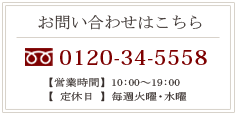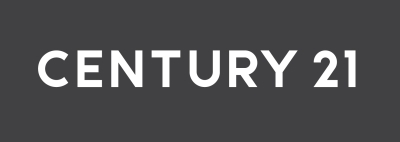2023年2月
2023年2月26日
j$k5492353j$k
As businesses continue to expand and engage in collaborations, it is important to establish a Non-Objection Certificate (NOC) agreement. This is a legal document that is binding between two parties, where one party agrees not to object to the actions of the other party. An example of an NOC agreement is in cases where an employee wishes to join a competitor or start their own business.
To ensure that your NOC agreement is effective, it is important to have a proper format in place. Here are a few factors to consider when drafting an NOC agreement:
1. Clarity and precision
The NOC agreement should be clear and to the point. The language used should be easily understood, and ambiguity should be avoided. This ensures that both parties understand the requirements and expectations.
2. Names and addresses
The names and addresses of both parties must be included in the NOC agreement. This ensures that the document is legally binding and enforceable.
3. Terms and duration
The terms of the NOC agreement should be specific and comprehensive. This includes the duration of the agreement, the scope of the agreement, the reasons for the NOC, and the consequences of violating the agreement.
4. Confidentiality
If the NOC agreement involves confidential information, it is important to include a confidentiality clause. This ensures that the information is not disclosed or used for any purpose other than the agreed-upon terms.
5. Signature and date
The NOC agreement should be signed and dated by both parties. This ensures that both parties are aware of the agreement and that it is binding.
In conclusion, drafting an NOC agreement is essential when engaging in business collaborations. A clear and precise format should be followed to ensure that the agreement is legally binding and enforceable. By including all the necessary terms and clauses, both parties can collaborate with confidence and clarity.
2023年2月19日
j$k5202823j$k
The COVID-19 pandemic has brought about many changes in our daily lives, including the way we approach childcare. With parents needing to work and schools closed, many have turned to daycare services as a solution. However, as the pandemic continues, it`s important to ensure that parents and daycare providers are on the same page regarding safety measures. One way to do this is through a daycare contract that addresses COVID-19.
A daycare contract is a legal agreement between parents and childcare providers that outlines the terms and conditions of care. While there are many things to consider when creating a daycare contract, COVID-19 has added a new element to the process. In a COVID-19 daycare contract, there are several things to include:
1. Health protocols: The contract should outline the health protocols that the daycare will be following to prevent the spread of COVID-19. This might include things like regular cleaning and disinfecting, mask-wearing policies, and social distancing guidelines.
2. Sick child policies: The contract should also outline the policies for children who become sick, including COVID-19 symptoms. This might include things like how long a child must stay home after showing symptoms or after testing positive for COVID-19.
3. Parent obligations: The contract should also address the obligations of parents in preventing the spread of COVID-19. This might include things like keeping children home when they are sick, informing the daycare if a family member tests positive for COVID-19, or following quarantine guidelines.
4. Liability: Finally, the contract should address liability in the event that a child or staff member contracts COVID-19. This might include things like who is responsible for medical expenses or what happens if the daycare is forced to close due to a COVID-19 outbreak.
Creating a COVID-19 daycare contract is important for both parents and childcare providers. By establishing clear guidelines and expectations, everyone can work together to keep children safe during these uncertain times. When looking for a daycare, it`s important to ask about their COVID-19 policies and to ensure that they have a contract in place that addresses these issues. By working together, we can help prevent the spread of COVID-19 and keep our children and communities healthy.
2023年2月16日
j$k5791534j$k
A forward subscription agreement (FSA) is a legal contract between an investor and a company that allows the investor to purchase shares of the company at a predetermined price at a future date. Essentially, it is an agreement made between the investor and the issuer of the shares that lays out the terms of the investment.
Forward subscription agreements are often used by startups and early-stage companies to raise capital. They offer a number of benefits to both the company and the investor. For the company, FSAs can be a more flexible way to raise funds than traditional methods such as issuing shares or taking on debt.
The FSA typically includes information such as the number of shares being purchased, the price per share, and the date on which the shares will be issued. The agreement also includes any conditions or restrictions that may be placed on the investor, such as limitations on their ability to sell the shares.
One of the key benefits of an FSA is that it allows the company to secure funding from investors without having to sell shares immediately. This can be important for early-stage companies that may not be ready or able to go public or attract larger investments.
For the investor, an FSA can provide an opportunity to invest in a company at a discounted price before it goes public or experiences rapid growth. Because the investor is committing to buying shares at a future date, they are often able to secure a lower price than they would if they were to buy shares on the open market.
However, it is important to note that investing in an FSA carries risks as well. The investor is essentially making a bet on the future success of the company and there is no guarantee that the company will perform as expected. Additionally, it can be challenging to assess the value of the shares being offered through an FSA as there is often limited information available about the company`s financials or market potential.
It is also worth noting that FSAs are generally not available to the general public as they are considered private placements. Only accredited investors who meet certain wealth or income requirements are eligible to participate in these types of investments.
In summary, a forward subscription agreement is a legal contract between an investor and a company that allows the investor to purchase shares at a future date at a predetermined price. Although these agreements offer benefits to both the company and the investor, they come with risks and are generally only available to accredited investors.


